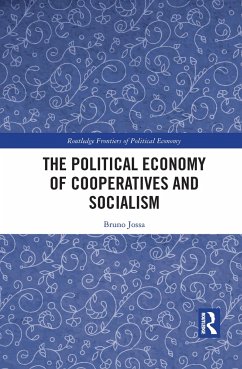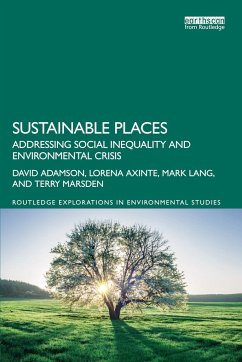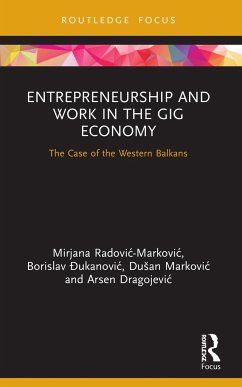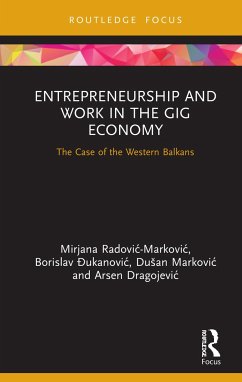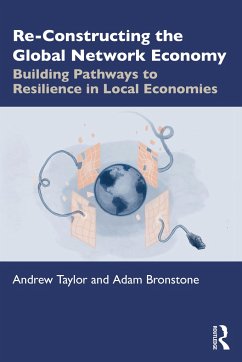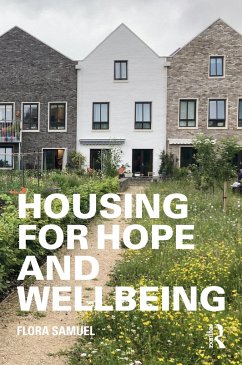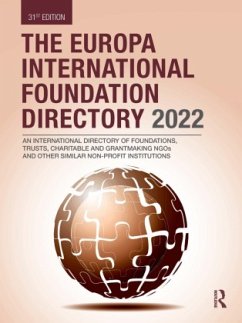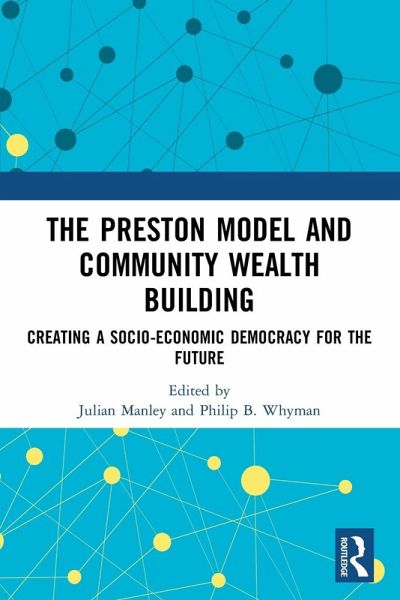
The Preston Model and Community Wealth Building
Creating a Socio-Economic Democracy for the Future
Herausgegeben: Manley, Julian; Whyman, Philip B.
Versandkostenfrei!
Versandfertig in 6-10 Tagen
41,99 €
inkl. MwSt.
Weitere Ausgaben:

PAYBACK Punkte
21 °P sammeln!
Through a deep examination of what has become known as the 'Preston Model', this book explores an innovative approach to local economic development that utilises economic democratisation to realise both social and economic objectives.The first part of the book examines the main strands of the Preston Model framework and what makes it different to other urban regeneration schemes: the combination of local anchor institution procurement to generate and retain local wealth, and the development of cooperatives to fill gaps in local supply chains. The chapters in this section consider the Preston M...
Through a deep examination of what has become known as the 'Preston Model', this book explores an innovative approach to local economic development that utilises economic democratisation to realise both social and economic objectives.
The first part of the book examines the main strands of the Preston Model framework and what makes it different to other urban regeneration schemes: the combination of local anchor institution procurement to generate and retain local wealth, and the development of cooperatives to fill gaps in local supply chains. The chapters in this section consider the Preston Model as viewed through different lenses: politics and society, community, economics, democracy, trade unionism, language and communication, education and transferability. The second part explores the influences and applications of the Preston Model, in theory and practice, in selected locations and various circumstances worldwide. This includes discussion of key ideas such as economic democracy, social enterprise and the creation of capacity for cooperative self-government, alongside essays on prominent international examples of similar approaches, which can inform and in turn be informed by the Preston Model.
This book is essential reading for those interested in regional and national policy, economic democracy and alternative economic and political ideas.
The first part of the book examines the main strands of the Preston Model framework and what makes it different to other urban regeneration schemes: the combination of local anchor institution procurement to generate and retain local wealth, and the development of cooperatives to fill gaps in local supply chains. The chapters in this section consider the Preston Model as viewed through different lenses: politics and society, community, economics, democracy, trade unionism, language and communication, education and transferability. The second part explores the influences and applications of the Preston Model, in theory and practice, in selected locations and various circumstances worldwide. This includes discussion of key ideas such as economic democracy, social enterprise and the creation of capacity for cooperative self-government, alongside essays on prominent international examples of similar approaches, which can inform and in turn be informed by the Preston Model.
This book is essential reading for those interested in regional and national policy, economic democracy and alternative economic and political ideas.





